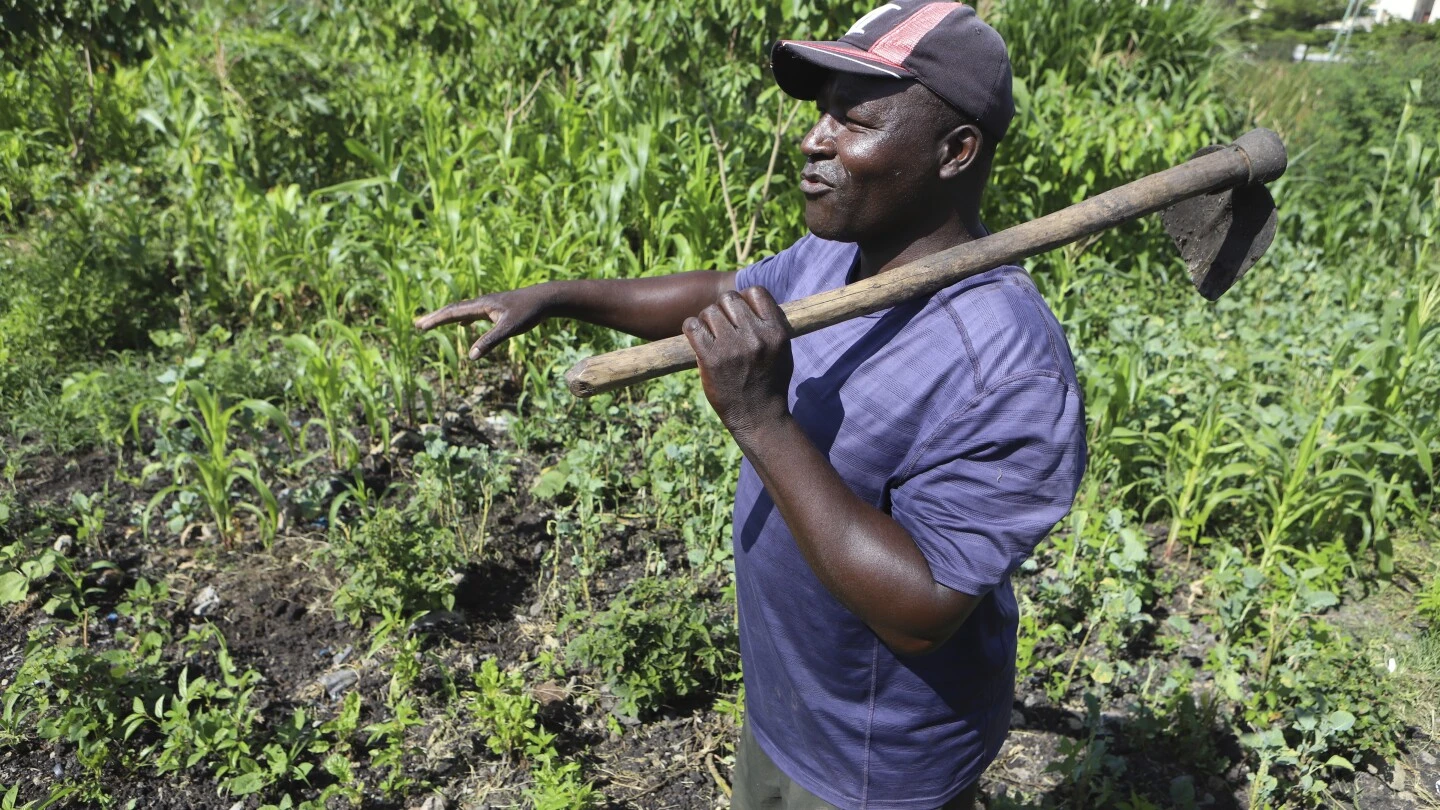Farmers in Africa say their soil is dying and chemical fertilizers are in part to blame
Farmers in Africa say their soil is dying and chemical fertilizers are in part to blame

Farmers in Africa say their soil is dying and chemical fertilizers are in part to blame

When Benson Wanjala started farming in his western Kenya village two and a half decades ago, his 10-acre farm could produce a bountiful harvest of 200 bags of maize. That has dwindled to 30. He says his once fertile soil has become a nearly lifeless field that no longer earns him a living.
Like many other farmers, he blames acidifying fertilizers pushed in Kenya and other African countries in recent years. He said he started using the fertilizers to boost his yield and it worked — until it didn’t. Kenya’s government first introduced a fertilizer subsidy in 2008, making chemical fertilizers more accessible for smaller-scale farmers.
Problems with soil health are growing as the African continent struggles to feed itself. Africa has 65% of the world’s remaining uncultivated arable land but has spent about $60 billion annually to import food, according to the African Development Bank. The spending is estimated to jump to $110 billion by 2025 due to increased demand and changing consumption habits.
“Inorganic fertilizers were never meant to be the foundation of crop production,” he said, later adding that because of “commercially inclined farming, our soils are now poor, acidic, and low in biomass resources, and without life!”
Step 1 might be to not plant the same crop on the same land for two and a half decades straight.
Years ago I went to Kenya and Tanzania to asses some fields for trials of new cultivars my group was developing. There were a lot of issues with people seeing a yearly decrease in crop yield. But the major issue was actually the lack of crop rotation causing a buildup of disease in the soil which was weakening the plants each year.
I don't know this guy or his field. And, not carefully fertilizing fields can cause root burn for sure. But poor agricultural yield in Africa is definitely impacted by poor crop rotation.
Wasn't farming invented in Africa? Or at least the nearby Middle East. This has been a known issue for years.
I bet it's an issue with farmers needing money now, because of low crop prices. Crop prices are cyclical, so hopefully it works itself out without too much economic damage.
The sort of work that is succeeding in parts of Africa, Pakistan, and India is setting up what they call food forests. Put some fruiting tree species in the center and surround throughout with fruiting and vegetable producing plants. This will form a more complex web of creatures that can live together and produce food for the people who take care of them. No fertilizers, no irrigation--just crops that are appropriate for the region. They can take years to get going, though, which is the hard part. Once they are going, it's just a question of tending to them.
You also can't really mechanise that, so forget about sending the kids to the city for high school. And it's pretty much guarenteed you need to fertilise at least a bit to get the same yield, just by conservation of mass of P and N, assuming you're harvesting from it.
Contrary to popular opinion, farming is not simple or easy, and there's actual reasons monoculture at scale is so popular.
They fucked something up, even if it's not that. You'll notice the soils of the US midwest are good as gold after a near-century of this shit.
That's not really their fault, though. Presumably nobody came and explained the best practices.
No the soils in the Midwest are not good.
https://storymaps.arcgis.com/stories/7e1766e613384ea59aef9ff17ccbdc9c
https://www.sciencedirect.com/science/article/abs/pii/S0341816224002716?via%3Dihub
Erosion and soil profile degradation from poor farming practices are a huge issue.